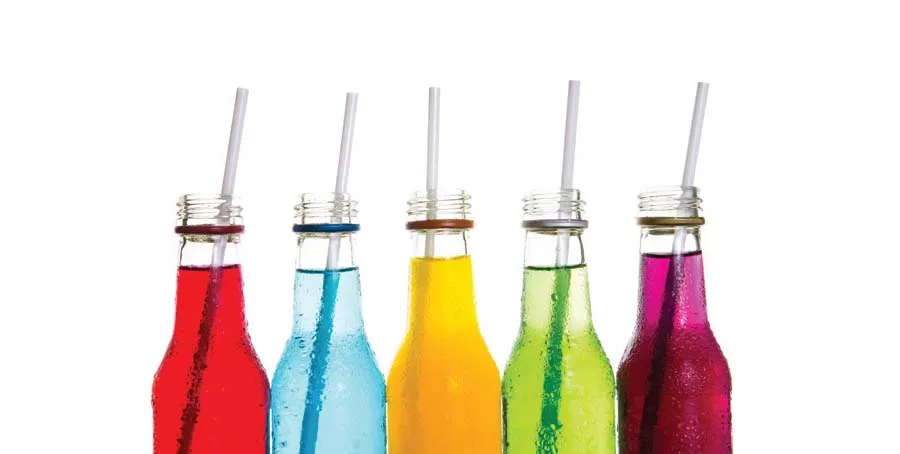Natural glycolipids help control microorganisms in soft drinks
Dacryopinax spathularia glycolipids offers alternative to synthetic preservatives

Current methods for keeping beverages free from spoilage are limited and involve either chemical ingredients or resource-intensive technologies like aseptic or hot filling. All existing options have their downsides, and in the past, alternative technologies have been limited. However, a new antimicrobial ingredient derived from an edible mushroom recently launched. These natural glycolipids offer consumer-friendly marketing options while reliably protecting beverages from spoilage.
Because of the high water content, a beverage is a sensitive product. Most beverages, if not treated by physical or chemical means, will spoil under ambient conditions within days or even hours. Formulation can improve stability to some extent, but cannot usually ensure it. For example, carbonization can eliminate a good part of the microbial threats, as does any other acid, but it does not eliminate all of the microbial threats that might be present. Ethanol content also will help to stabilize, but it is not desirable to have alcohol content in every beverage and also does not eliminate every threat.
In spite of available technologies, most beverages remain susceptible to spoilage. For years, the market has been looking for innovation in regards to beverage preservation. With an expected growth of 5.6 percent for the global soft drinks market between 2017 to 2021, it is estimated that the primary drivers of this growth will be “better-for-you” products with natural or health claims. In light of these current trends, the ingredient to control microbes should ideally be completely natural. But current natural candidates do not offer the same protection as conventional preservatives.
More than a decade ago, a proprietary program based on state-of-the art pharmaceutical research processes and search algorithms was launched to look for suitable antimicrobial products in the biosphere, such as the prime forest. Although nature can overwhelm with complexity at times, it also can be relatively simple.
The kingdom of fungi on the other hand is quite different. As exotic introverts, fungi have evolved to be true specialists. When thinking of unusual metabolisms and molecules, fungi are the organisms to look at. So, the world’s largest library of fungi and fungi extracts and related natural molecules was carefully screened for suitable actives that could function as natural antimicrobials. The most interesting natural molecules were narrowed down to one simple and truly innovative natural source: Dacryopinax spathularia, or sweet osmanthus ear. This edible mushroom belongs to the division of Basidiomycetes, often considered the “true mushrooms,” which also includes the more common button mushroom.
The fungus is native to the tropical rainforest of French Guiana but also is found in Asia and Europe. It is brightly orange colored and grows in the shape of small spatulas. The active substance, representing molecular congeners with a defined ratio, is derived from the fungus by a proprietary, food-grade, solvent-free process. The congeners all consist of a sugar part and a lipid part. This class of compounds is therefore called natural glycolipids, and Dacryopinax spathularia produces these in quite sufficient amounts.
Just as beverage consumers prefer unspoiled beverages, the spatula-shaped fungus prefers unspoiled wood. The natural glycolipids that the fungus contains are nature’s way for the fungus to keep its food free of spoilage. Those same glycolipids also can protect beverages when prepared for use in foodstuff.
The natural glycolipids of the Dacryopinax spathularia exclusively are available from LANXESS under the brand name Nagardo, derived from “natural guardian.” Produced by a certified fermentation process, the manufacturing process and the end product of Nagardo are entirely natural. Customers have often asked whether LANXESS can offer a natural alternative to conventional preservatives, and now, with Nagardo gylcolipids, a natural alternative is possible. Well-known soft drinks manufacturers around the world have begun projects with Nagardo, testing new recipes and evaluating additional applications.
Nagardo is available as a powder, and, under appropriate beverage conditions, shows superior efficacy against typical beverage-spoiling organisms compared to chemical preservatives, including organisms that have adapted to sorbate and benzoate, like zygosaccharomyces bailii.
In recommended dosages, Nagardo typically does not interfere with the sensory characteristic of a beverage like color, odor and most importantly, flavor. Therefore, Nagardo natural glycolipids can be applied in a wide range of beverages. Carbonated beverages in particular can benefit from Nagardo protection because a second preservative is not typically required.
The FDA has designated Nagardo as Generally Recognized as Safe (GRAS) for use in beverages, and, in the United States, use of Nagardo in beverages launched in January. BI
Looking for a reprint of this article?
From high-res PDFs to custom plaques, order your copy today!




